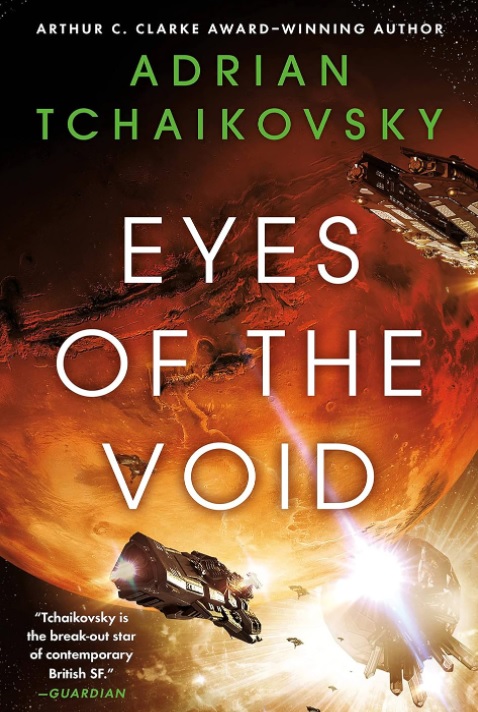Stars: 4.5 out of 5
You would think that when different factions and races that make up intelligent life in the galaxy discover that the Architects are back, they would put aside their petty squabbles and unite in the face of an overwhelming enemy, right? Well, you would be wrong.
The Architects are back and this time they are destroying inhabited worlds regardless of the species who live on them, whereas before they only concentrated on human worlds. Heck, even the Hegemony isn’t protected by their Originator relics anymore. But instead of uniting and fighting together, humanity is shattering and descending into an inner conflicts. HUGH and the Partheni are at each other’s throats and the smallest spark can ignite a powder keg of mutual destruction…
It’s interesting to see that all the characters in this book struggled with their loyalties to their respective factions versus their own moral code and what they thought was the right thing to do. Idris defected to the Partheni at the end of the last book because he hoped that they could engineer Ints without subjecting people to the horrible programs that HUGH had put in place. Programs that have over 80% mortality. And the surviving Ints are broken beyond repair, and are no better than slaves. But when a war between HUGH and Partheni seems eminent, he struggles with this decision. Is he a traitor for abandoning the Colonies? Of course, soon that consideration becomes rather irrelevant, at least to him.
Solace and Olli have their own doubts and crisis of faith moments as well, but ultimately, I love that their first loyalty is to their found family on Vulture God as well as humanity as a whole instead of a particular faction their originated from.
We also learn a lot more about the universe, the structure of Unspace and its relation to our real space, oh and a little bit about the foreboding presence that stalks whoever enters Unspace.
I was also impressed with the few planets described in this book. The destruction of Arc Pallator by the Architects after they removed the Originator ruins was epic. Especially considering that our characters were smack in the middle of it, running in said ruins. That was an amazing and heartpouding sequence of events. And Criccieth’s Hell is truly a hellish world.
My only complaint about this book is that the characters seem a lot more passive than in the first book – things happen to them, and they just react to that instead of being a driving force behind the story. This is especially true of Idris, who spends the whole book being a magic McGuffin that everyone tries to kidnap.
This small complaint notwithstanding, I enjoyed this book, and I am looking forward to the last book in the series.

